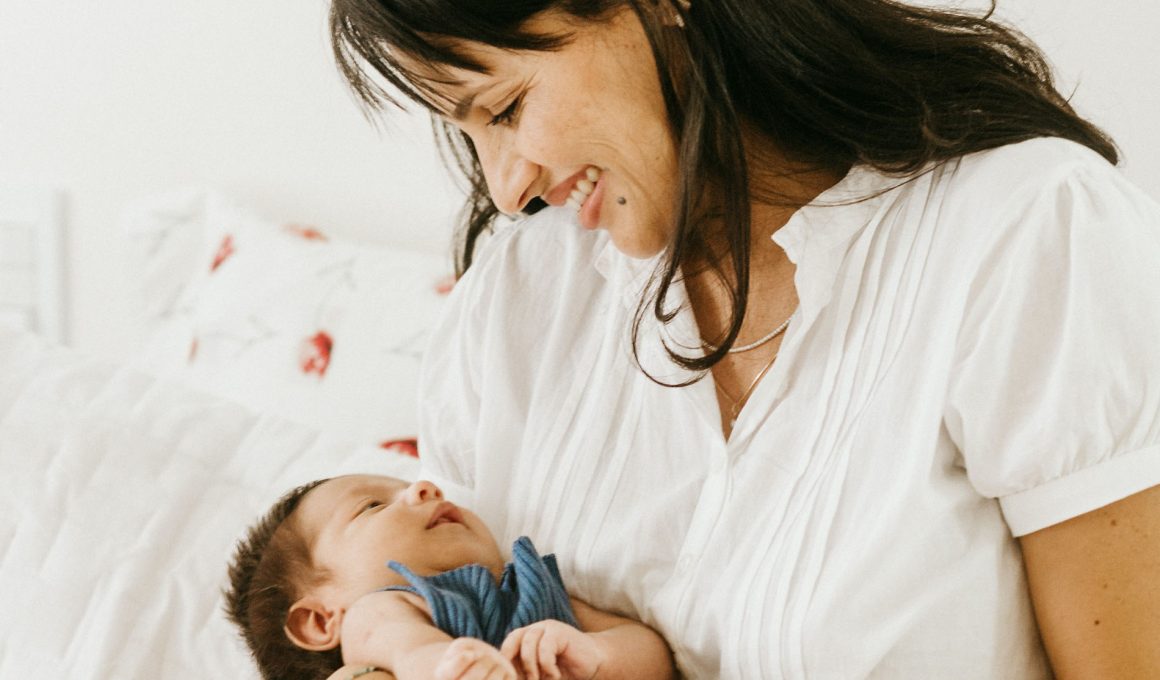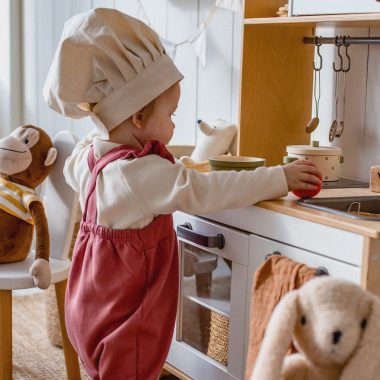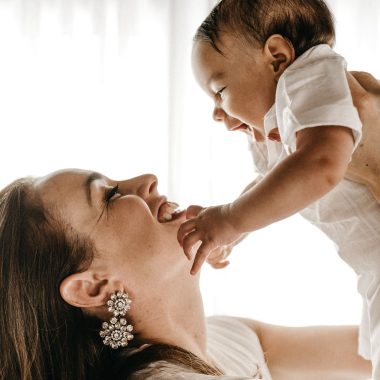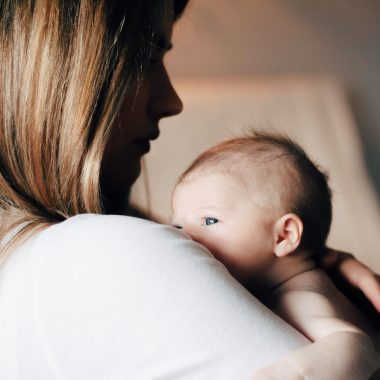A lot of people, especially mothers, feel like there is a set of rules that dictate what being a good parent is like. They feel like there is some manual somewhere that will help them become a “perfect parent”. The fact that there are countless parenting books dedicated to the cause does not help. However, there is no such thing as the perfect parent.
Parenting is an art form that is based on the simple basics of being a good person. Setting a good example for your children is all that you need to do to ensure that you raise happy and healthy children who will contribute to the positive progression of society.
Children learn through actions more than they do through words. Of course, guiding them and giving them advice on how to behave is an essential part of parenting. However, you must know that leading by example is the best method to adopt for parenting. Your children will observe you and mimic your behavior, particularly in the earlier stages of growth.
Owing to the fact that children are not great critical thinkers, they will simply observe and then copy your actions. For this reason, it is imperative to set a good example with your actions instead of spending too much time on advice.
ALSO READ: Mom Guilt: Everything you Need to Know and How to Manage
Parenting itself is a learning process that everyone learns along the way. There is no tried and tested formula to being a great parent. As your child grows and learns, you do, too. You gain wisdom and experience along the way and learn through trial and error.
That being said, here are a few things to consider if you wish to follow a guideline on how to be a good parent.
Table of Contents
Take care of yourself
You must learn to prioritize yourself above all. Remember that if you are in great health and spirit, then your baby will be too. Very often, mothers forget to ever put themselves on the list of people to take care of in a family. Mothers are known for their selflessness. Putting everyone else first is chalked off as motherly instinct. In this race to serve everyone else and never themselves, mothers exhaust themselves. They get sick easily and even grow tired, irritable, and resentful of just about everything.
By making sure you take time out for yourself, you prioritize your health and wellbeing. This will in turn positively affect the relationships you build with your child and family. Allow yourself some space to breathe and you will be far better capable of handling motherhood and being a “good parent”.
Create a distinct life for yourself
Too many times mothers attach their entire existence to that of their children. This is a leading cause of unhealthy attachments. At every stage of growth, your child will need you in a different capacity. While infanthood requires a heightened level of attention and care, as your child grows into a toddler, child, and eventually a teenager, their needs will shift.
That being said, we do not advocate for lack of availability when it comes to your child’s needs. A parent must always be available to tend to their child’s needs. However, the degree of attentiveness will alter as the years go by. As a mother, you also need your friends, activities, and interests that are separate from your child. Besides, this will also greatly assist your child in self-development and independence as they grow older.
Accept that motherhood is for life
Motherhood is not restricted to your child’s early years. Yes, new mothers get all the attention and scrutiny. Being a mother is, undoubtedly, the most significant and impactful relationship in your child’s life. However, it is important to realize that as your child grows, they will develop more friendships and relationships.
Mothering your child is a lifelong commitment that involves guidance, nurture, support, care, love, and endless teachable moments. As your child grows, you will too. Your role in your child’s life will vary. Understanding how to be there for your child at every stage is a core tenet in good parenting.
ALSO READ: How do I know if my child is gifted?
Learn to apologize
Parents, like every other individual, make mistakes. But, more often than not, parents brush off their mistakes or avoid talking about them. Just like you teach your child to apologize if they make a mistake, you should too. Remember that children learn by watching us. Lead by example, and learn to apologize.
This is not to say that you use the term “sorry” excessively. Women already tend to over-apologize far more than necessary. In this instance, we mean if you engage in hurtful behavior or if your actions upset your child, normalize asking for forgiveness. If you fear that this might undermine your assertiveness, don’t be. It will not. Instead, it will teach your child(ren) tolerance, empathy, and respect for others regardless of age.
Stop taking misbehavior personally
When children “rebel”, they are attempting to convey something. Usually, parents take rebellious behavior as an undermining of authority, particularly when children are growing into young adults. It is important to handle such instances with an understanding of the bigger picture. Growth, as well as the transition to independence, will often lead to conflict. Instead of taking your child’s tantrums personally, focus on what they are trying to convey.
It is easy to get frustrated with misbehavior. But, these moments can become some of the biggest teaching moments in your child’s life. Chances are your child is simply growing and embarking on a journey of independence.
It is okay to express your feelings
Mothers are not robots. We have feelings, too, and sometimes they can overpower us. It is important to express those feelings with your child. Keeping everything to yourself will only result in growing anxiety in your child. Children are very perceptive and can detect changes in a mood far better than most adults do. So, if you are having a bad day, your child will probably notice before your partner does.
Make it a habit to communicate your feelings properly. Obviously, do not overwhelm your child. You cannot properly discuss how you feel with them as you would with a friend or another adult. But, do get in the habit of letting them know how you feel. A simple “Mommy is feeling tired and needs some time to rest” or “I am upset with something that happened today so I need some quiet time” goes a long way. This way, your child will also feel more at ease with sharing their feelings without necessarily being asked to.
A healthy dialogue is imperative to nurture a lasting and loving bond between you and your child.
ALSO READ: Intelligence in Children and Babies – Is My Baby a Genius?
Give your child space
Instead of attempting to control your child, allow them to be who they are. While parents do wish to influence their children in a particular manner, it is important to allow room for personal growth as well. Motherhood is as much an individual journey as it is shared. As a parent, you should find the balance between influence and encouragement, as well as independence and exposure.
The love and guidance you grant your child should always remain in the form of support and not overbearing influence. That also includes giving them physical space. You should not hover at all times and watch your child. Allow them some privacy. One of the best ways you can do that is by installing a baby camera that allows you to keep an eye on them from afar. That way you can make sure they are safe and protected without having to physically be there.
Love yourself unconditionally
Mothers are universally known for the endless love they dole out to everyone. Most of all, they love their children unconditionally. But, as a mother, you must learn to love yourself, too. Accept yourself and love yourself in all of your glory. Do you hear that voice in your mind that criticizes you and your ways? Yeah, shut it out. Silence the voice that doubts your efforts and plants the seeds of “perfectionism” in your heart.
Learn to talk to yourself how you do to your child, your partner, and your friends – with love and kindness. Ask yourself where has judging yourself consistently gotten you? That’s right! Nowhere! It is time you change the narrative and give love to yourself in abundance as you do to others.
In essence, the foundation for being a good parent lies in healthy parameters. Your child needs a healthy version of you more than they need a perfect version of you. When you buy into perfectionism, you can quickly let healthy boundaries and experiences slip away.
It is important to destroy the stigma that parents are supposed to be perfect. Just because Samantha chooses not to bottle-feed, that does not mean that you cannot. Sandra’s baby can count already but yours cannot? That is alright. Baby Evan started walking but your child is still crawling? Again, that is perfectly okay. Every child has different milestones and develops at their own unique pace. Your child’s progress is not a measure of how good or bad of a parent you are.
By giving in to the idea of perfection, you will place undue pressure on yourself as well as your child that will ultimately amount to a slew of concerns. Give yourself a break! Practice kindness, love, and empathy with yourself as well as your child.










